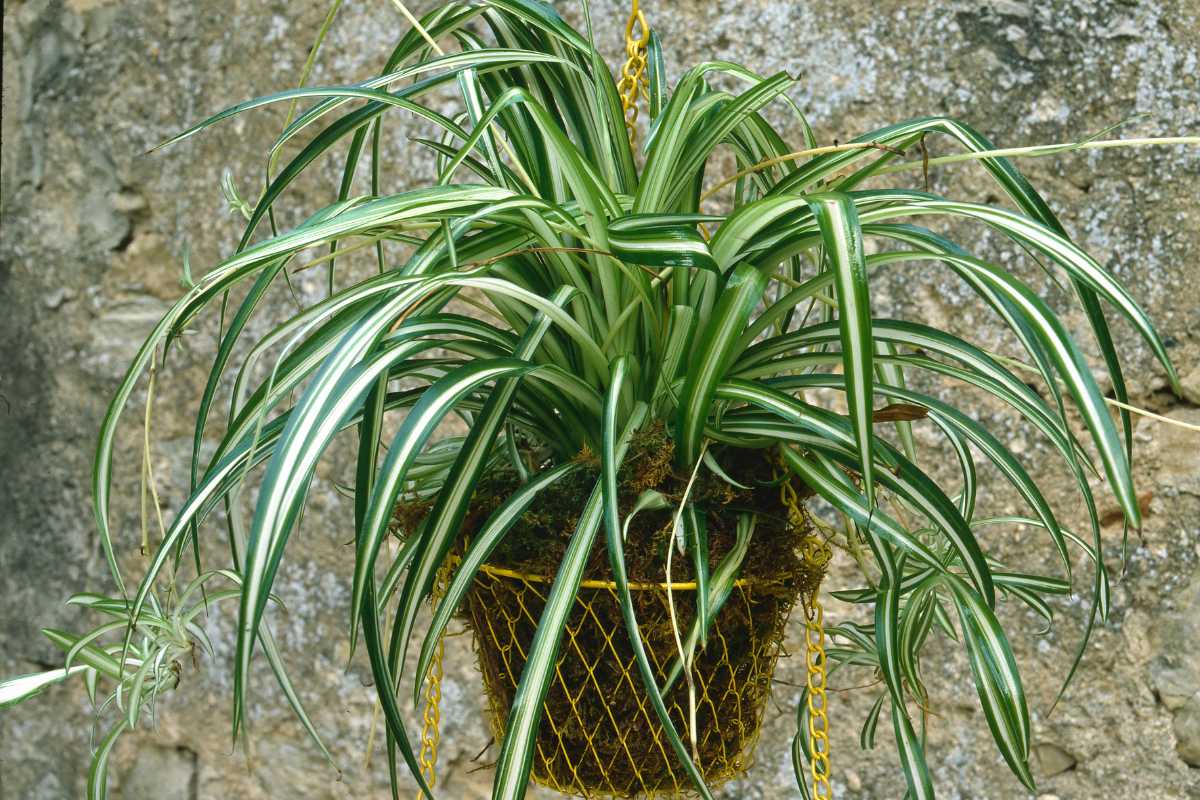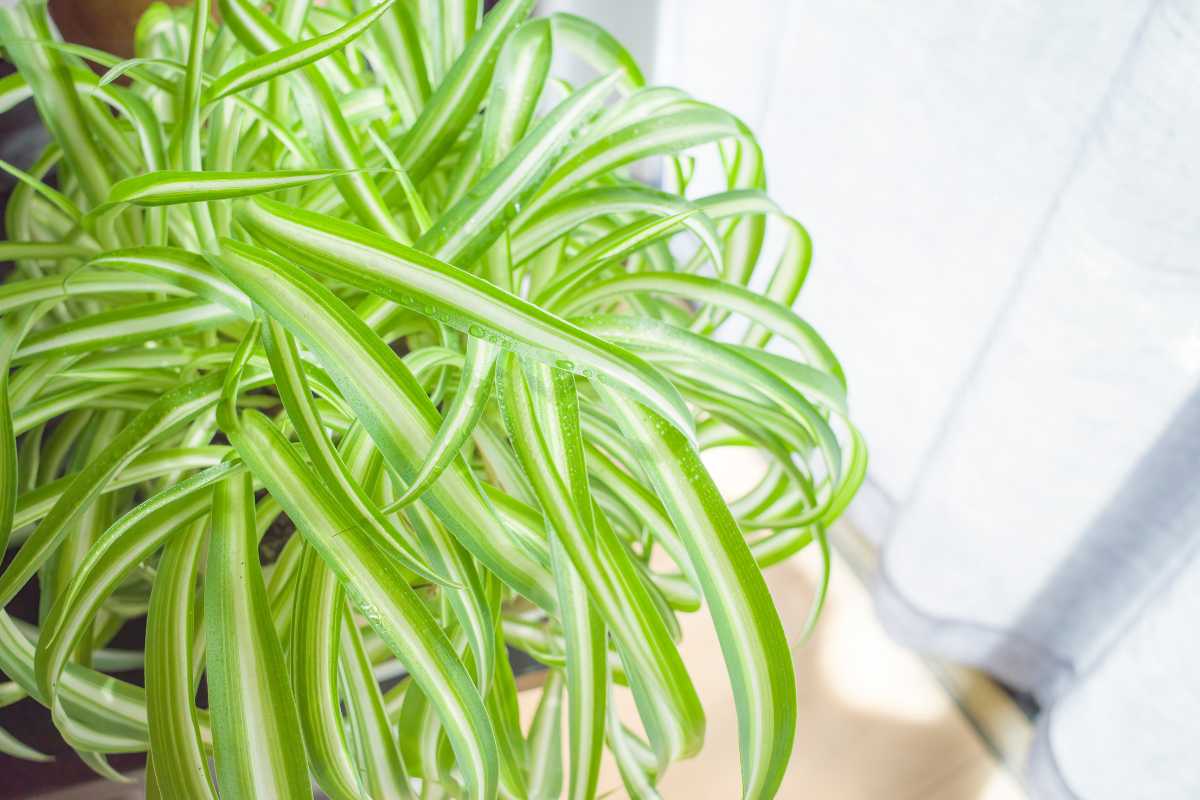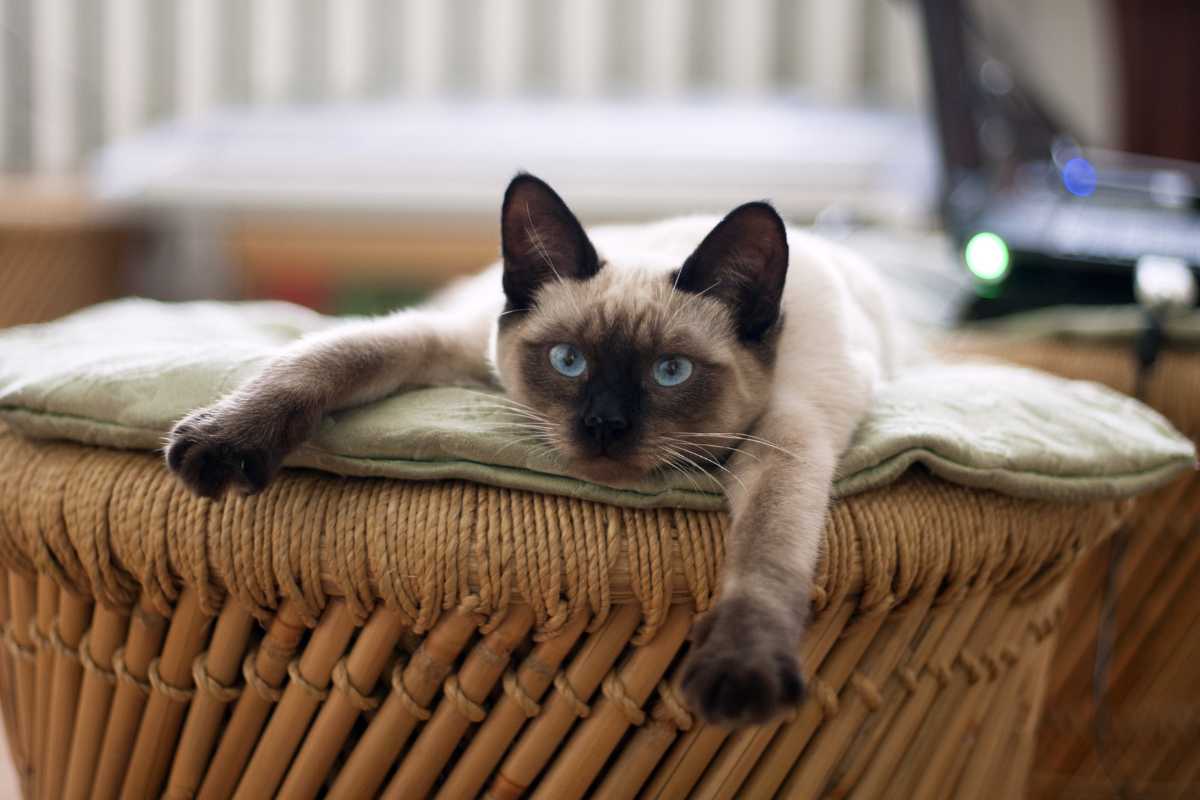Spider plants (Chlorophytum Comosum) are very popular houseplants that have the uncanny ability to attract cats. This plant is also known as ribbon plant or spider ivy.
With their beautiful dangly leaves, these plants are an almost irresistible toy for cats to play with, which makes it more likely that they will also eat it.
Fortunately, these plants aren’t toxic to cats and they will most certainly never cause your cat to die.
This doesn’t mean they are completely harmless though, as they can cause some vomiting or weird behavior because of the hallucinogenic compounds they contain.
- Related article: How to Care for Spider Plant
Therefore, it would be wise to keep these plants out of reach from your feline friends.
Are Spider Plants Poisonous to Cats?

Both the American Society for the Prevention of Cruelty to Animals (ASPCA) and the National Capital Poison Center have confirmed that spider plants aren’t toxic to cats.
However, your pet isn’t entirely safe when they consume this plant. To prevent even a mild stomach ache, cats should not be munching on too many spider plant leaves.
Just like dogs, these felines are programmed to eat greens because in the wild it helps them to purge their digestive systems of parasites or any harmful substance that they might have ingested.
Cats are obligate carnivores, meaning they aren’t adapted to eat all this fiber, which they will end up vomiting. With their domestic diet, they don’t really need it anyway.
Also, the use of chemical products such as pesticides and fungicides on your plant can further aggravate the negative effects of consuming the spider plant depending on their substances.
In this case, it would be best to prevent your curious kitty from feeding on your spider plant.
Are Spider Plants Hallucinogenic to Cats?

There are many hypotheses as to why cats have an affinity for spider plants in particular. Some think it’s simply because these common houseplants look similar to grass, or because of these felines’ love for anything dangly.
Another explanation is that spider plants are mildly hallucinogenic so your cats could have learned that munching on them gives them a bit of a high.
This is why you might notice your cat behaving erratically and obsessively after eating spider plant leaves.
Supposedly, the compounds found in these plants are related to opium, which aren’t toxic but could still cause an adverse reaction in some animals.
It might not always be easy to know if the vomiting is simply because of the excess greenery or related to the opium.
Also keep in mind that all cats are different, and even if one individual might not be affected much, another could suffer unpleasant side effects.
How to Keep Cats Away From Spider Plants

Everything considered, even if your beloved spider plants aren’t strictly toxic to cats, it’s still advisable to keep them out of reach.
An easy way to do this that is particularly well-suited to this type of plant is to place them in hanging baskets. You could hang them on wall brackets or even from the ceiling.
This might not always work though because these curious felines are excellent climbers and they will always find ways to reach things that pique their interests.
Of course, if you have rooms that your cat isn’t allowed into, the easy solution is to move your spider plants there.
These plants also love humid areas so the bathroom is a great location as well.
If your cats are still able to find your plant, you might need to spray a bitter-tasting repellant on it. If first impressions really do last, then this spray will surely keep them out.
Even though there are plenty of DIY recipes for cat repellants on the web, it’s best to err on the side of caution and consult your veterinarian before introducing any substances that could cause more harm than good.
An intelligent way to solve the problem that benefits both your cats and your spider plants is to provide alternatives for your green-loving felines that will distract them from spider plants.
There are plenty of cat grass varieties available in the market. They are very easy to grow in the house and are quite cheap.
It’s also possible that cats are attracted to these common household plants simply because they want to play, which could be a sign they aren’t getting enough entertainment.
Most healthy felines need to play for a bit every day or they will get bored and unleash their excess energy on anything remotely interesting around the house.
If you devote some time to helping them unwind, your cats will be less likely to disturb your plants and will also be much happier pets.
Final Thoughts if Spider Plants Are Toxic to Cats
Spider plants are a favorite of many when it comes to indoor plants. But although spider plants aren’t explicitly toxic to cats, it is best to keep them away to keep your kitty safe.
It may also be beneficial to provide alternative sources of entertainment for your cats and give them plenty of playtimes.
If you are fond of plants and would like to keep them along with your cat without the risk of harming them, you can buy Nephrolepis Exaltata, a safe plant for pets.
With some precautionary measures and a bit of extra attention, you can ensure to keep both your cats and spider plant safe and happy.
As soon as diverse reactions after your cat has fed on the plant, it’s a good idea to take them to the vet or a feline health center.
These awesome articles contain information about spider plants that you might also want to browse:
- Variety of Spider Plant
- Spider Plant Purple Flowers
- How to Propagate Spider Plant
- Are Spider Plants Poisonous to Dogs
- Spider Plant Toxic to Humans
Sources:

